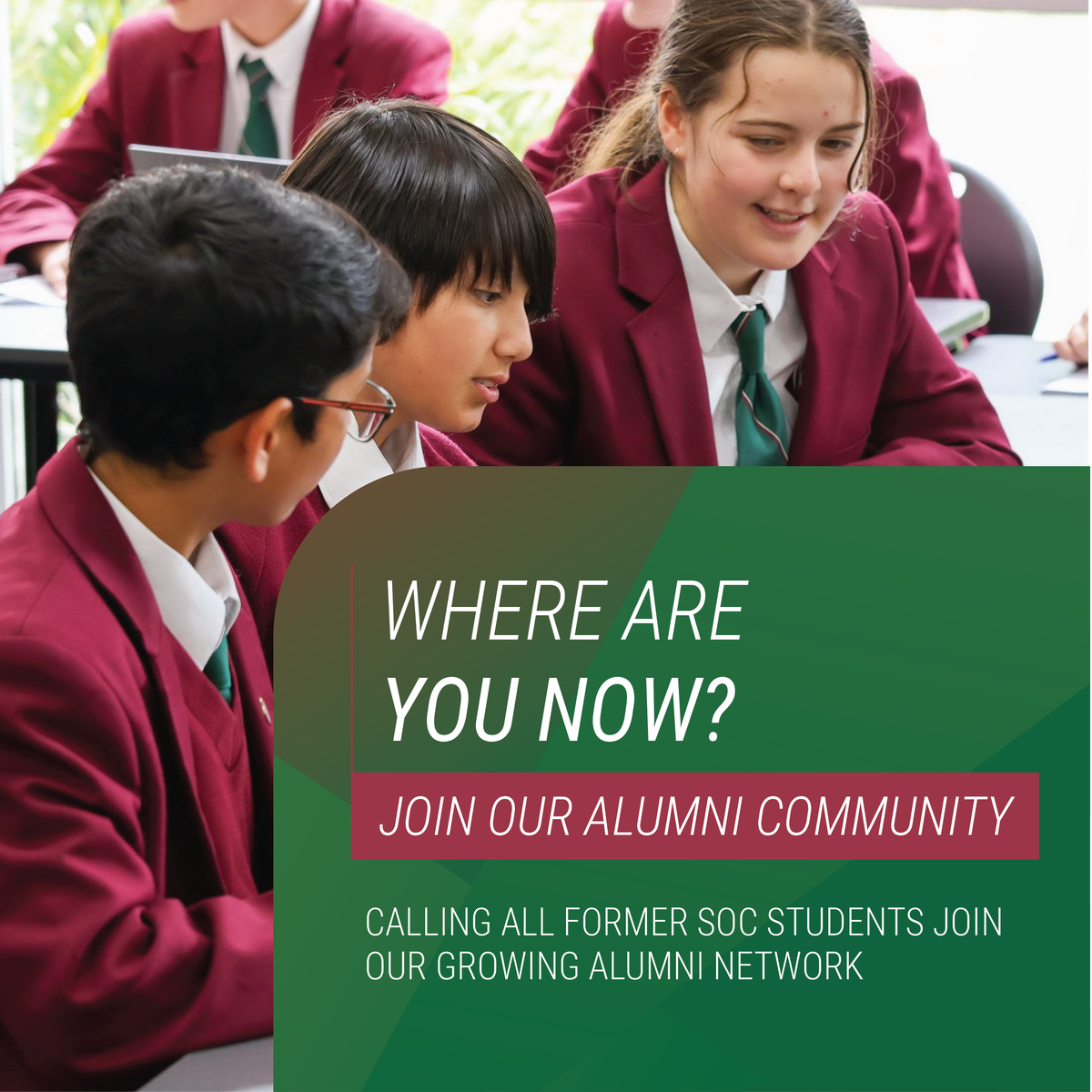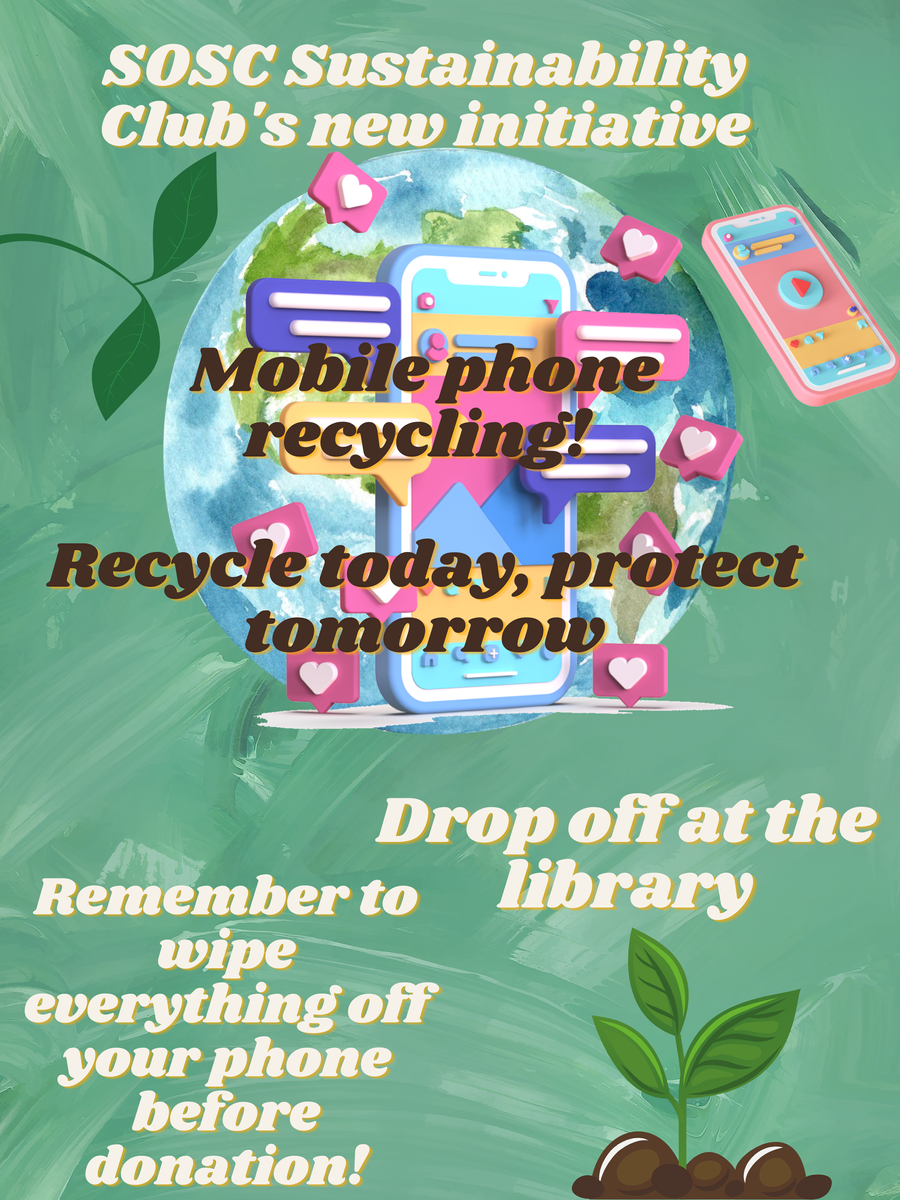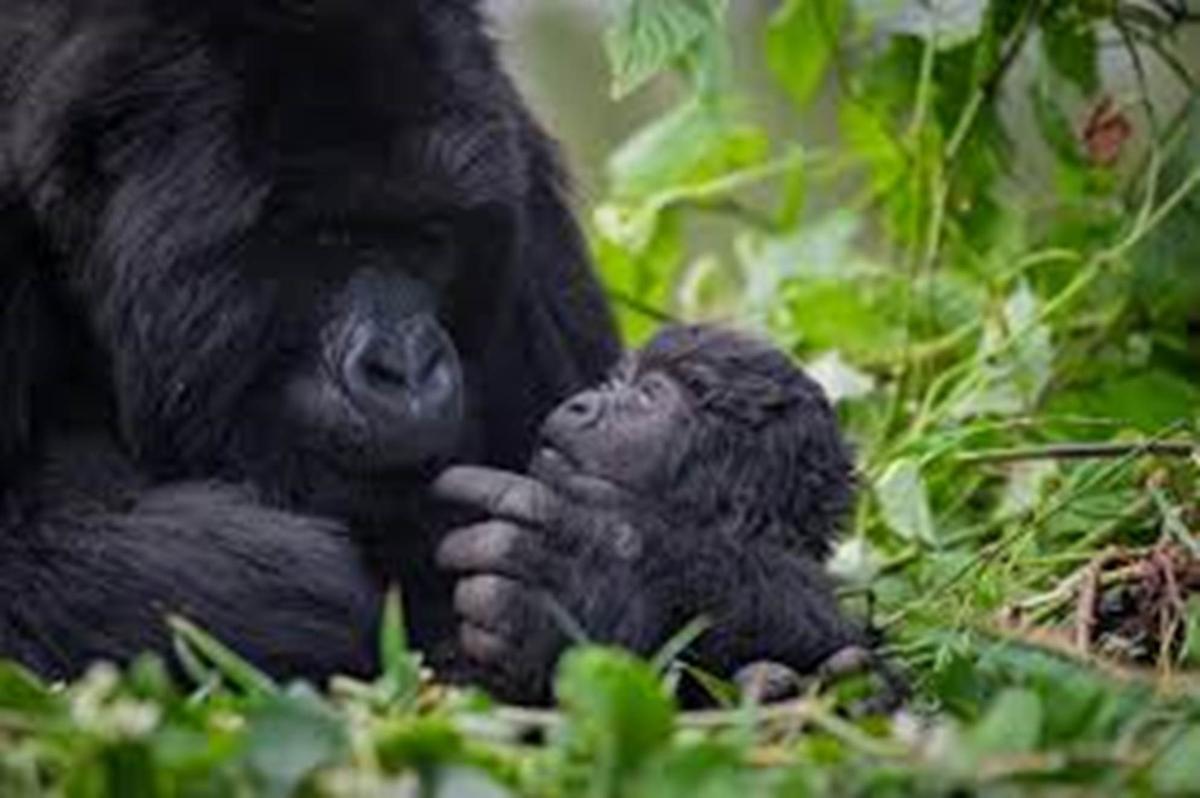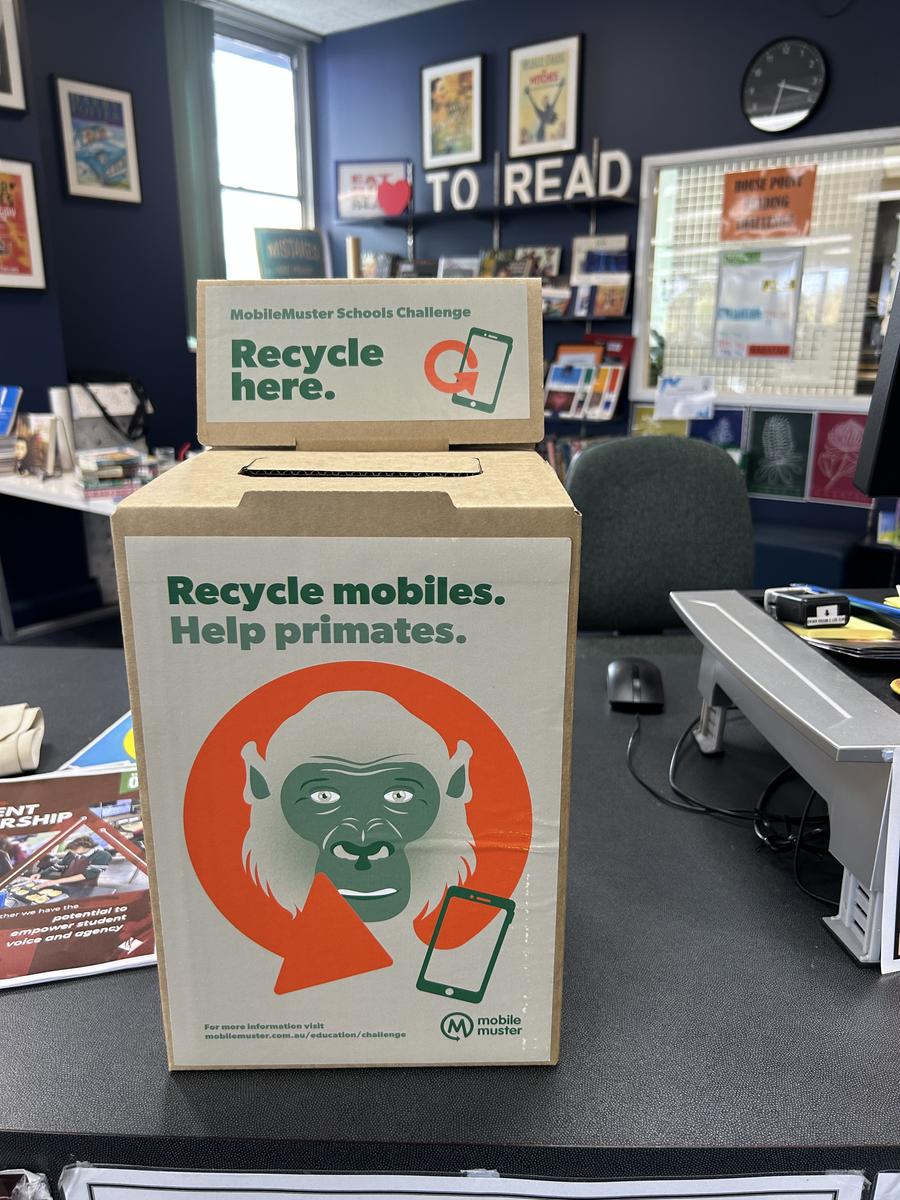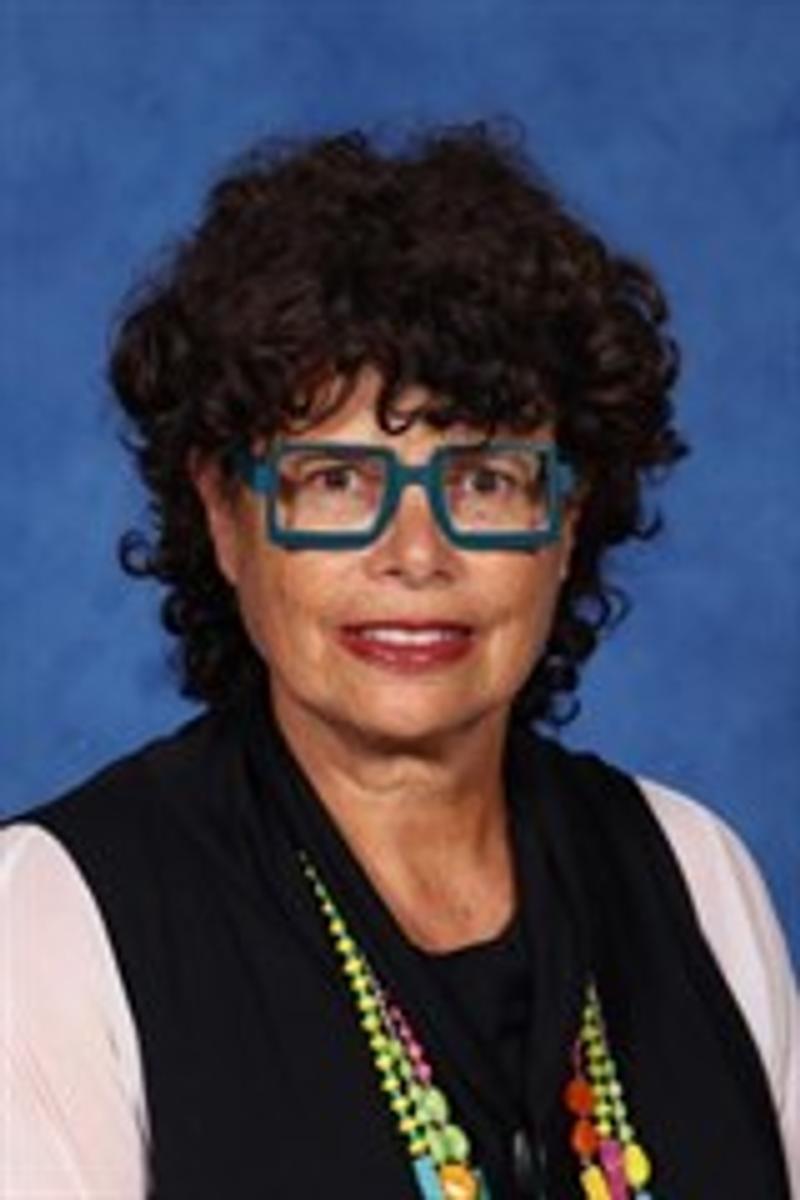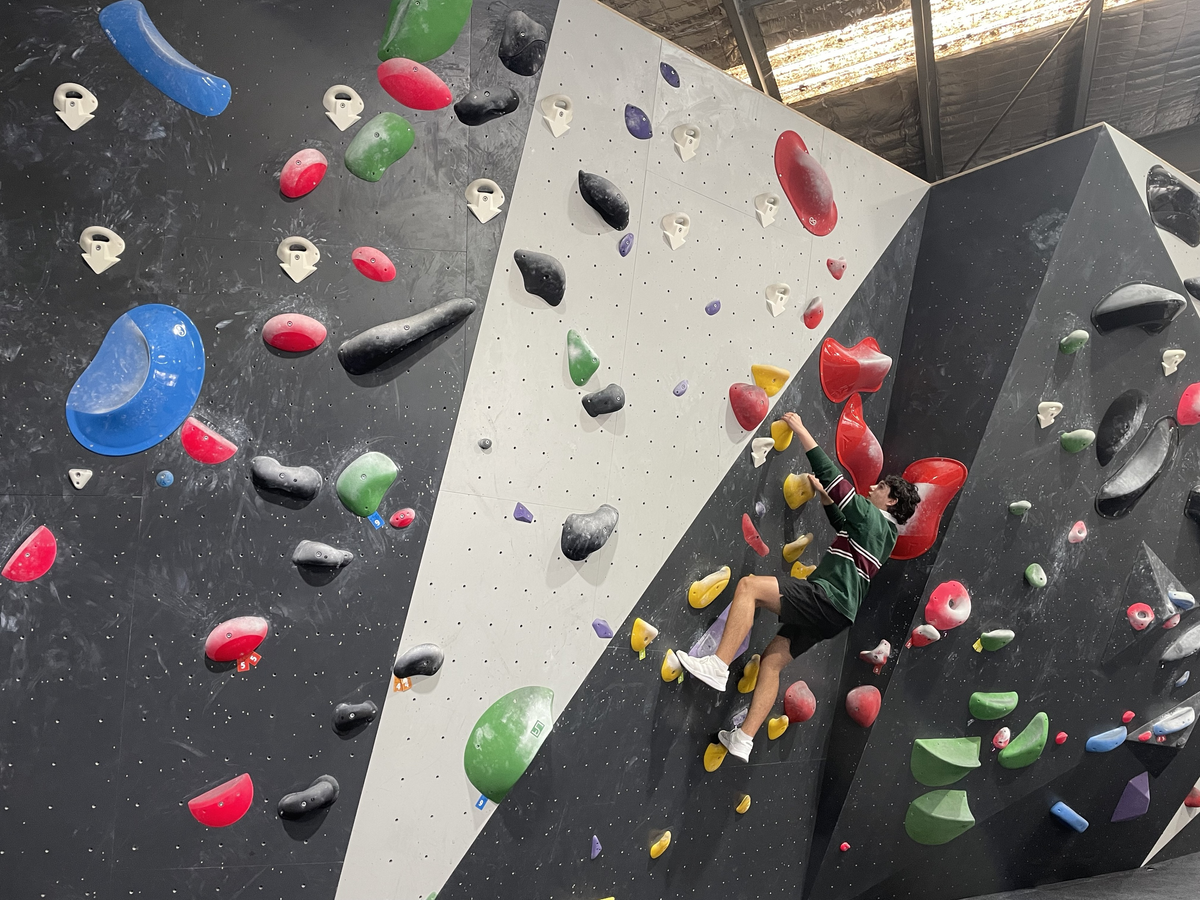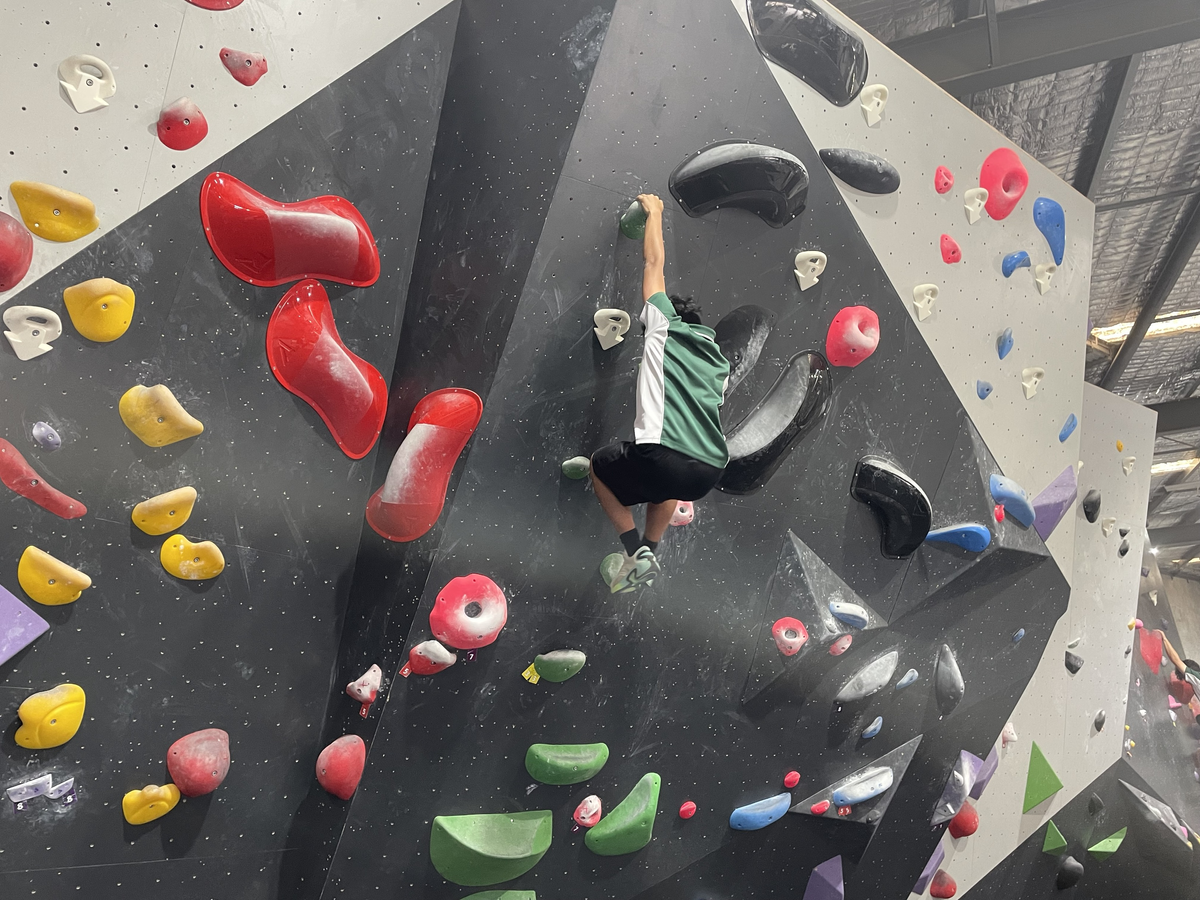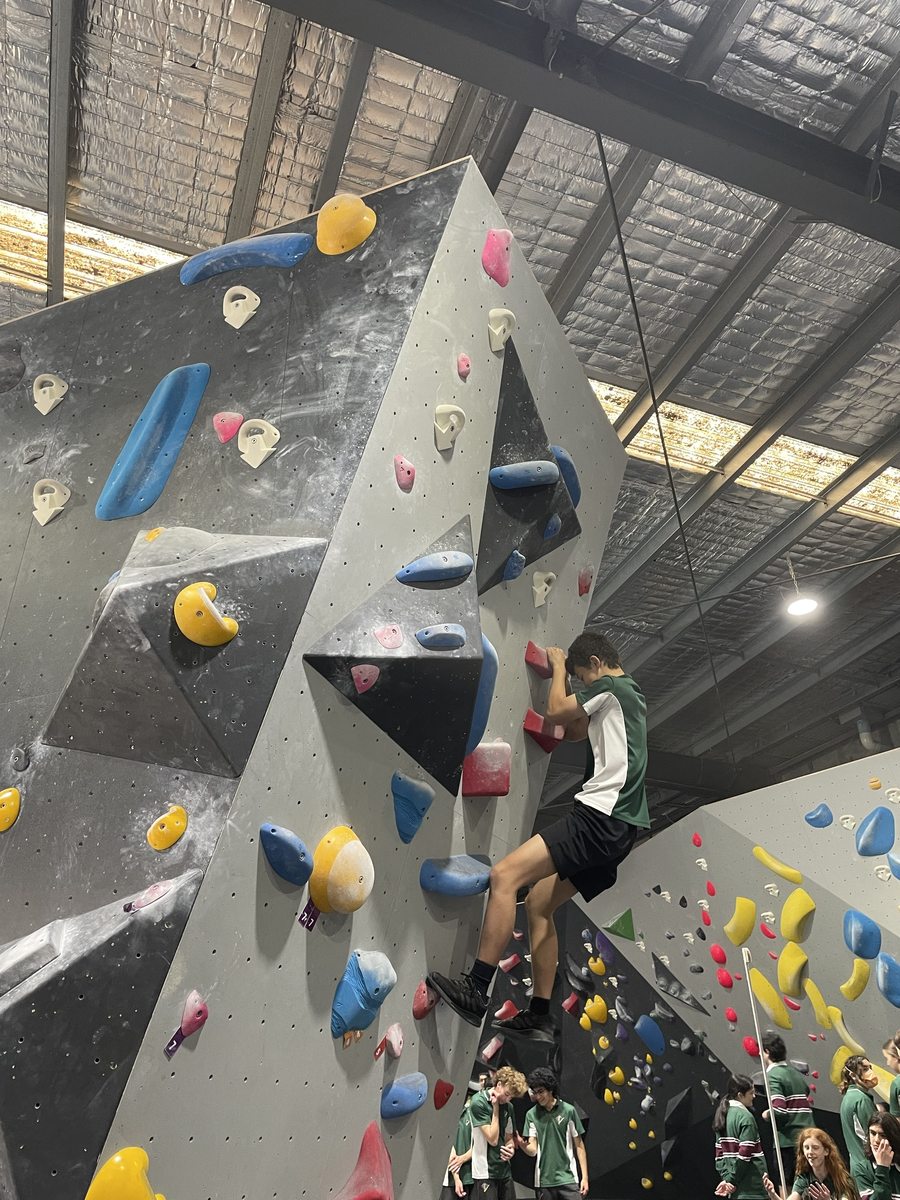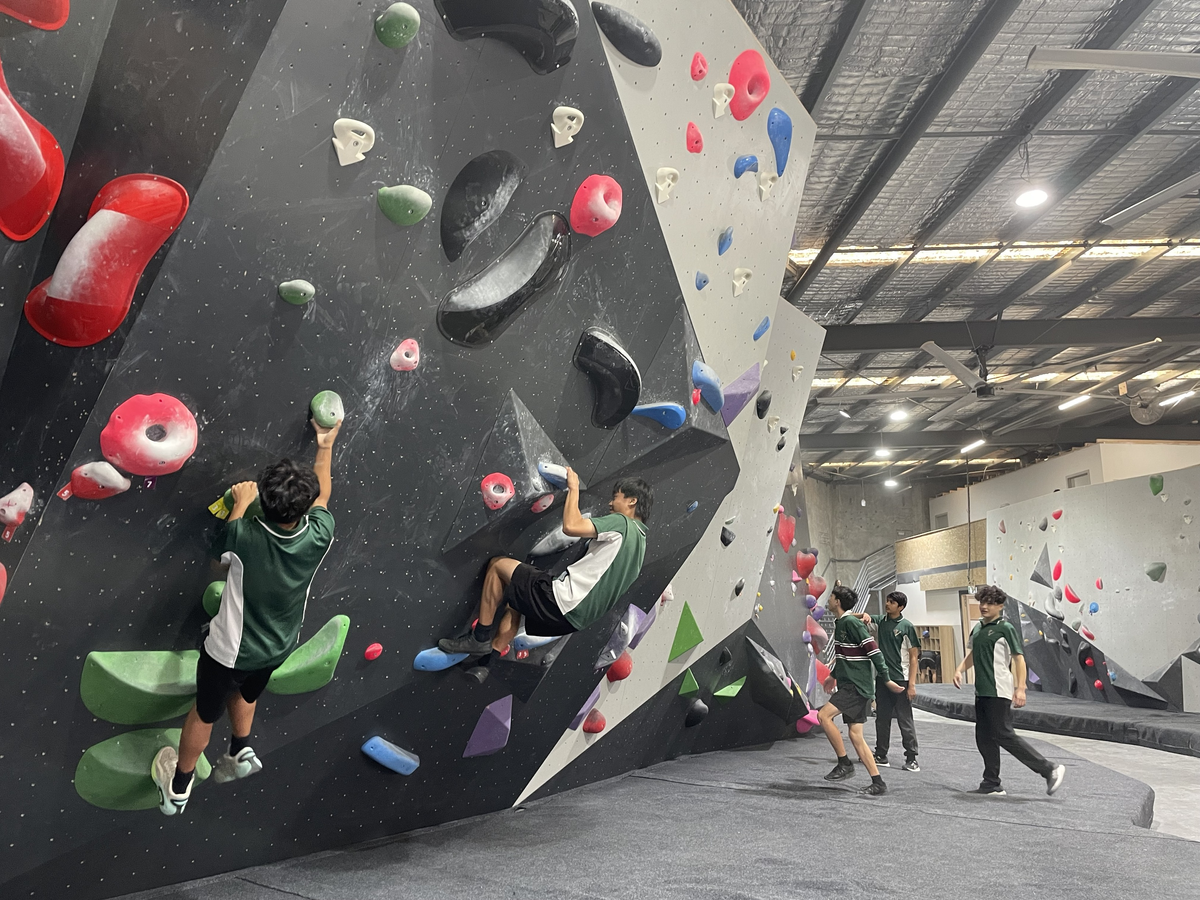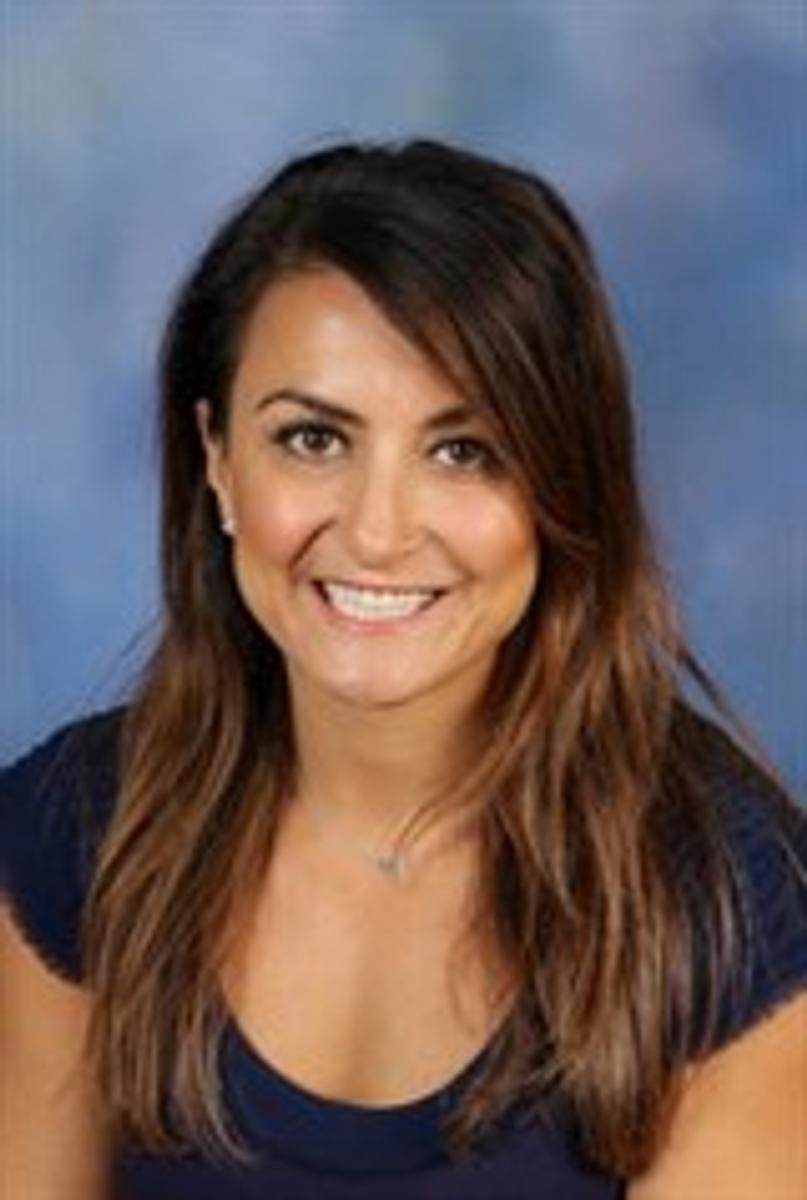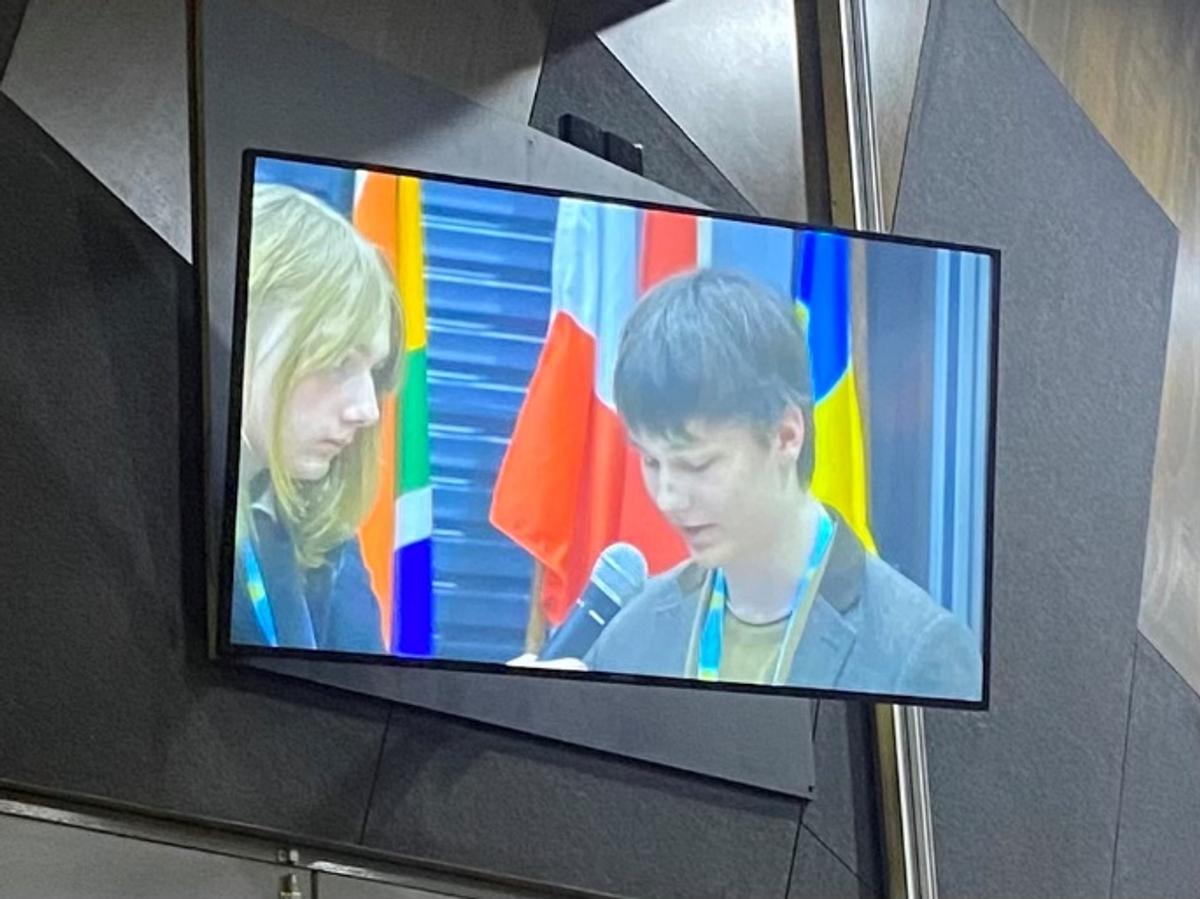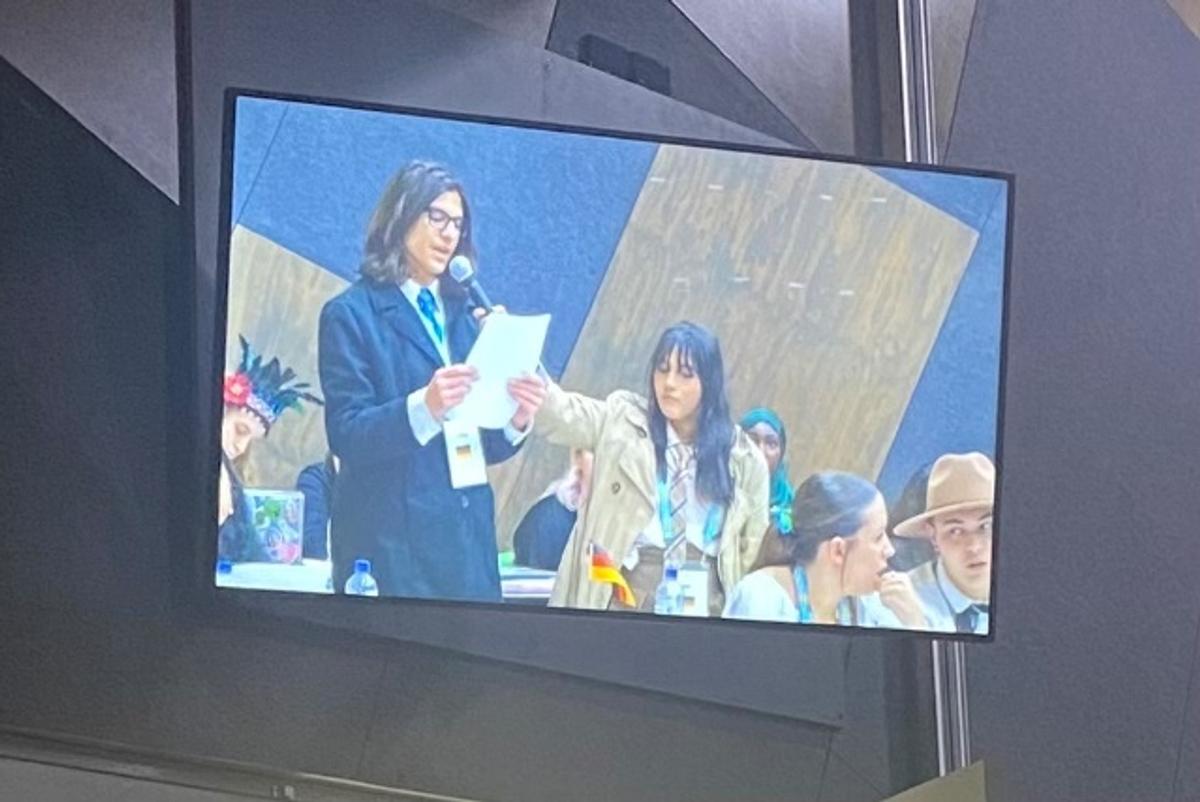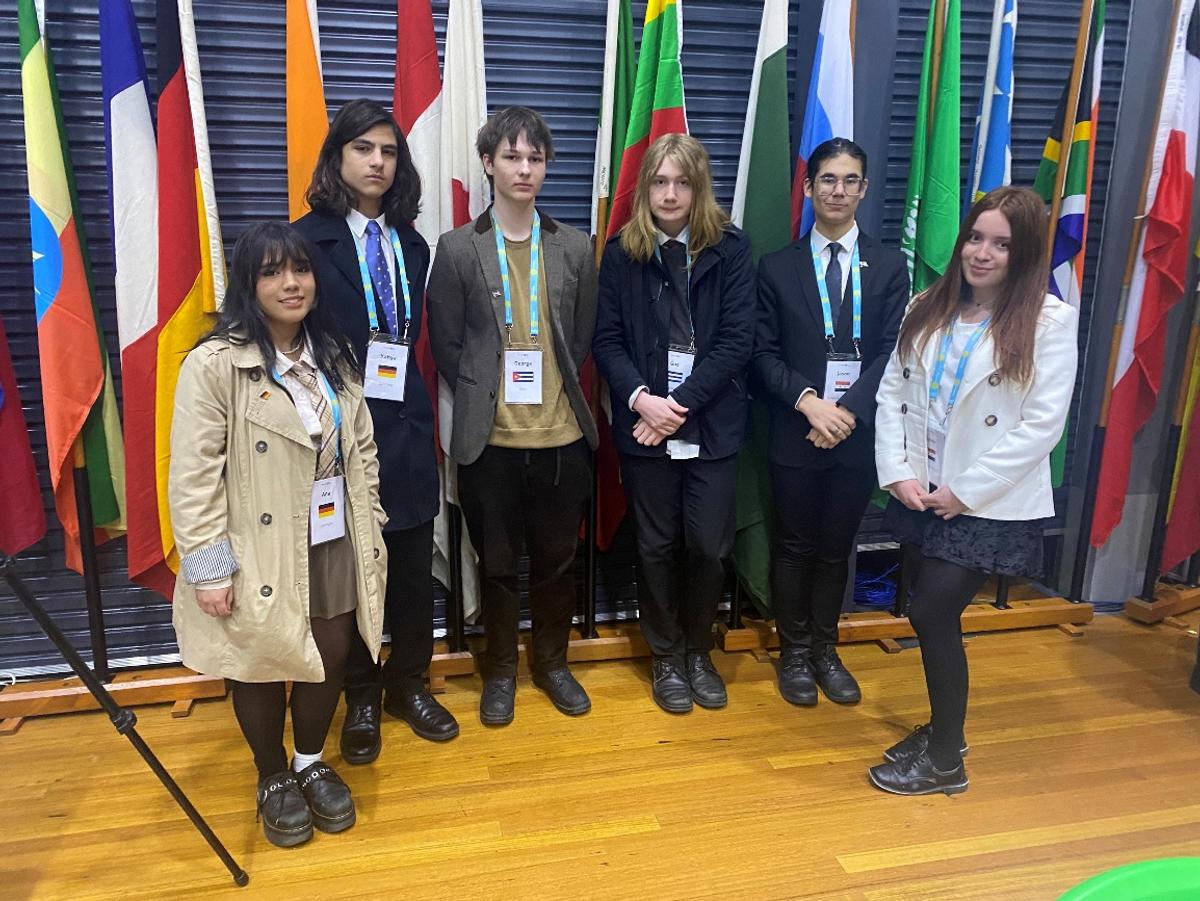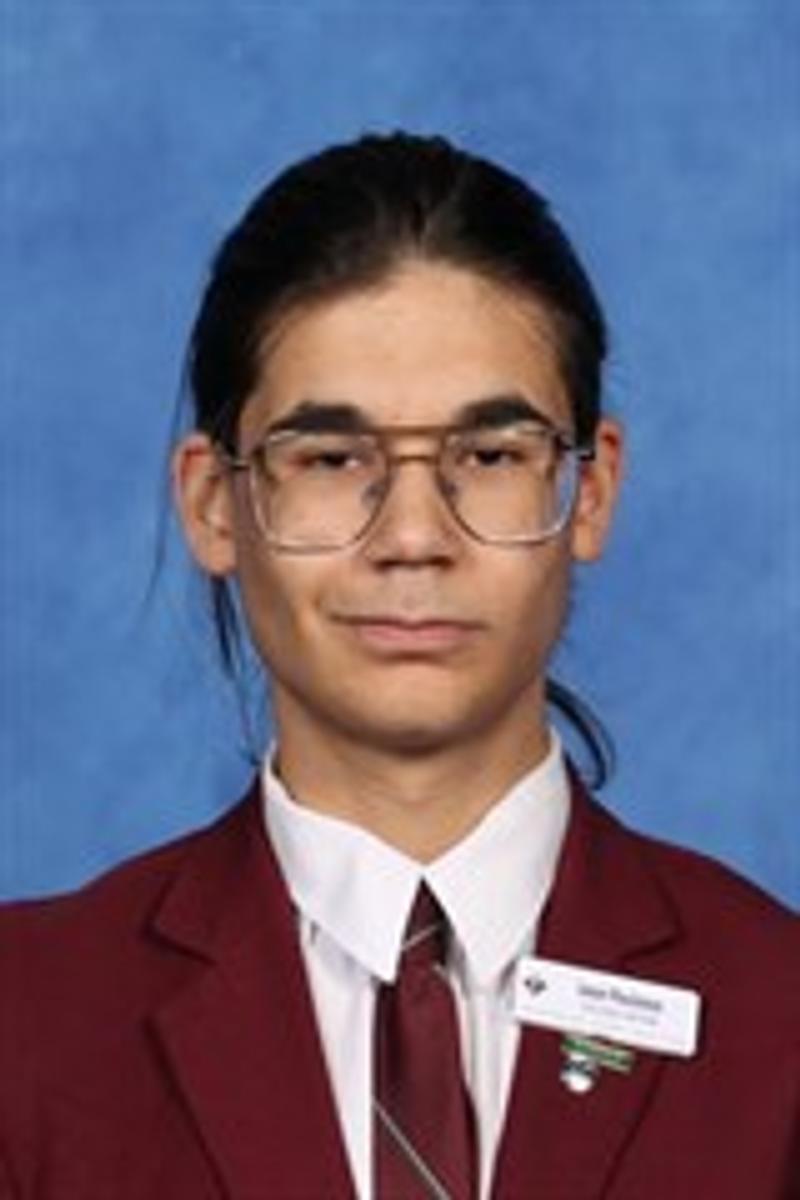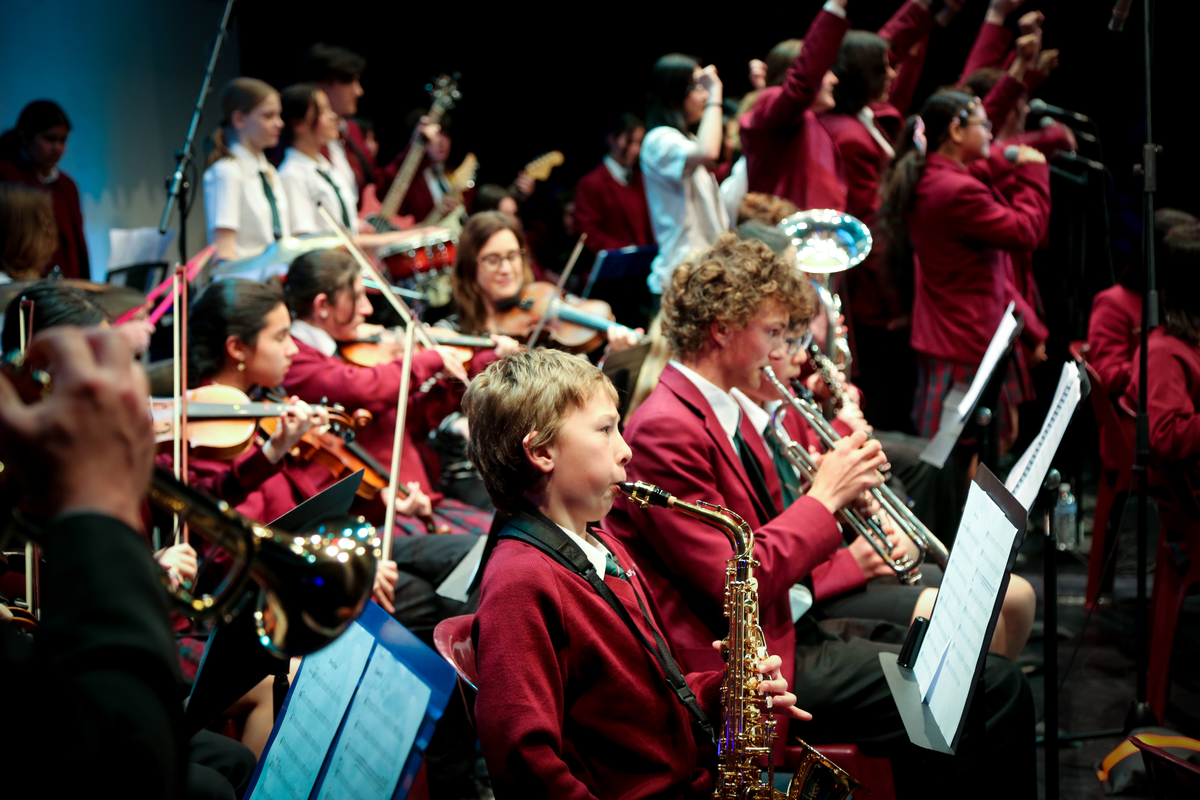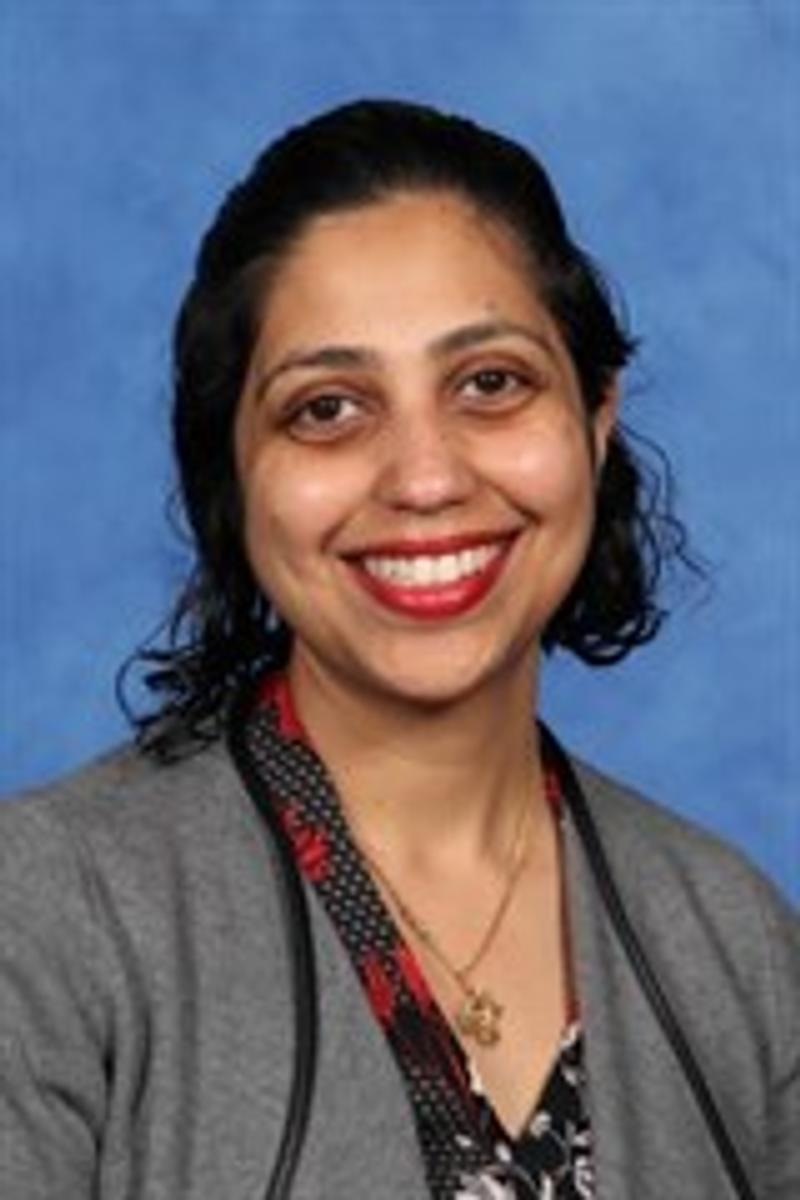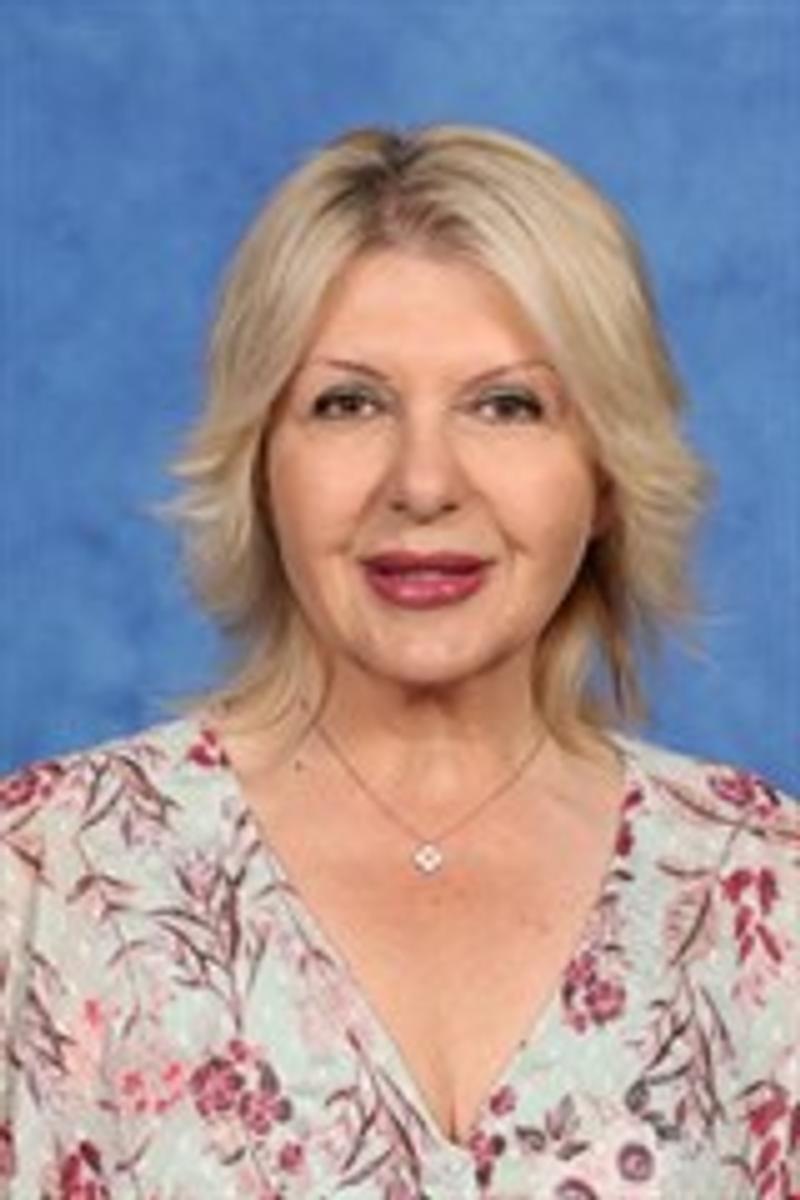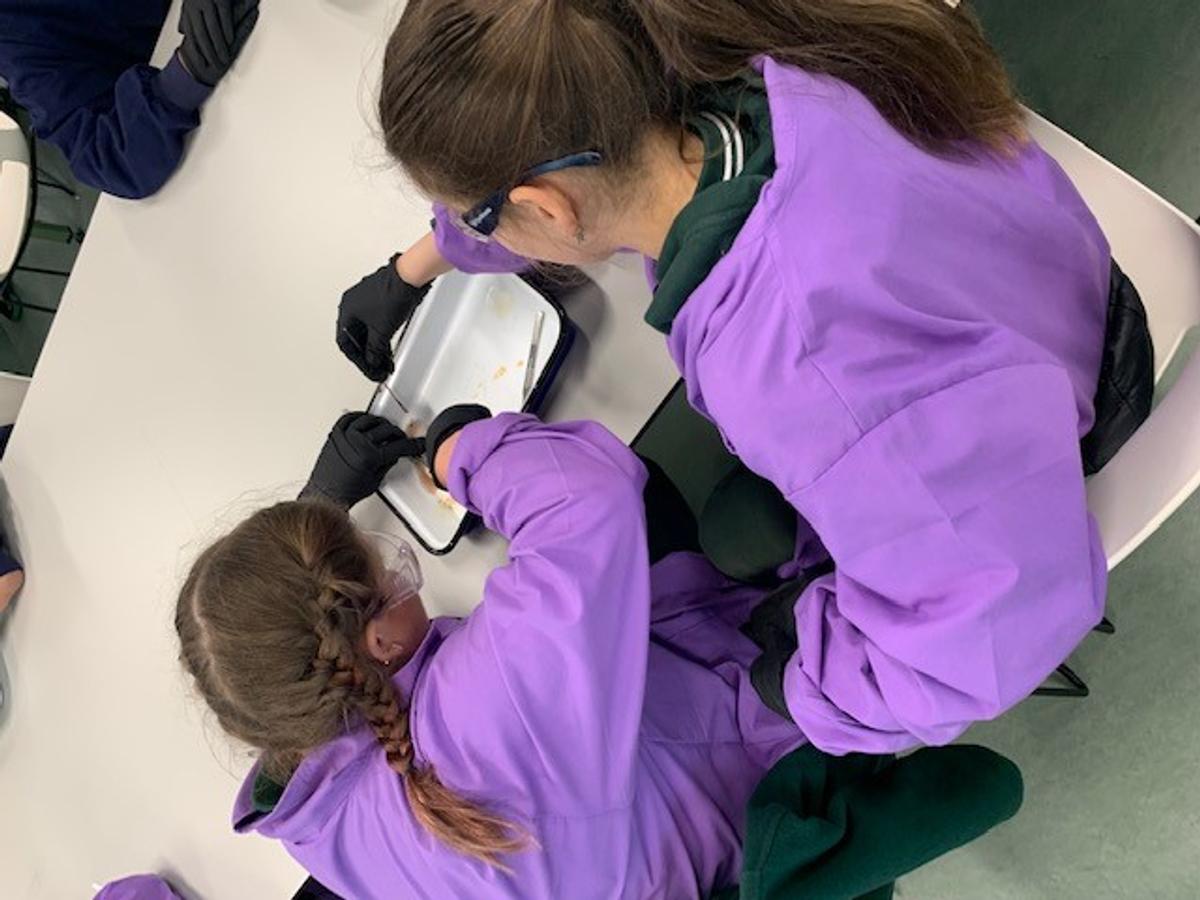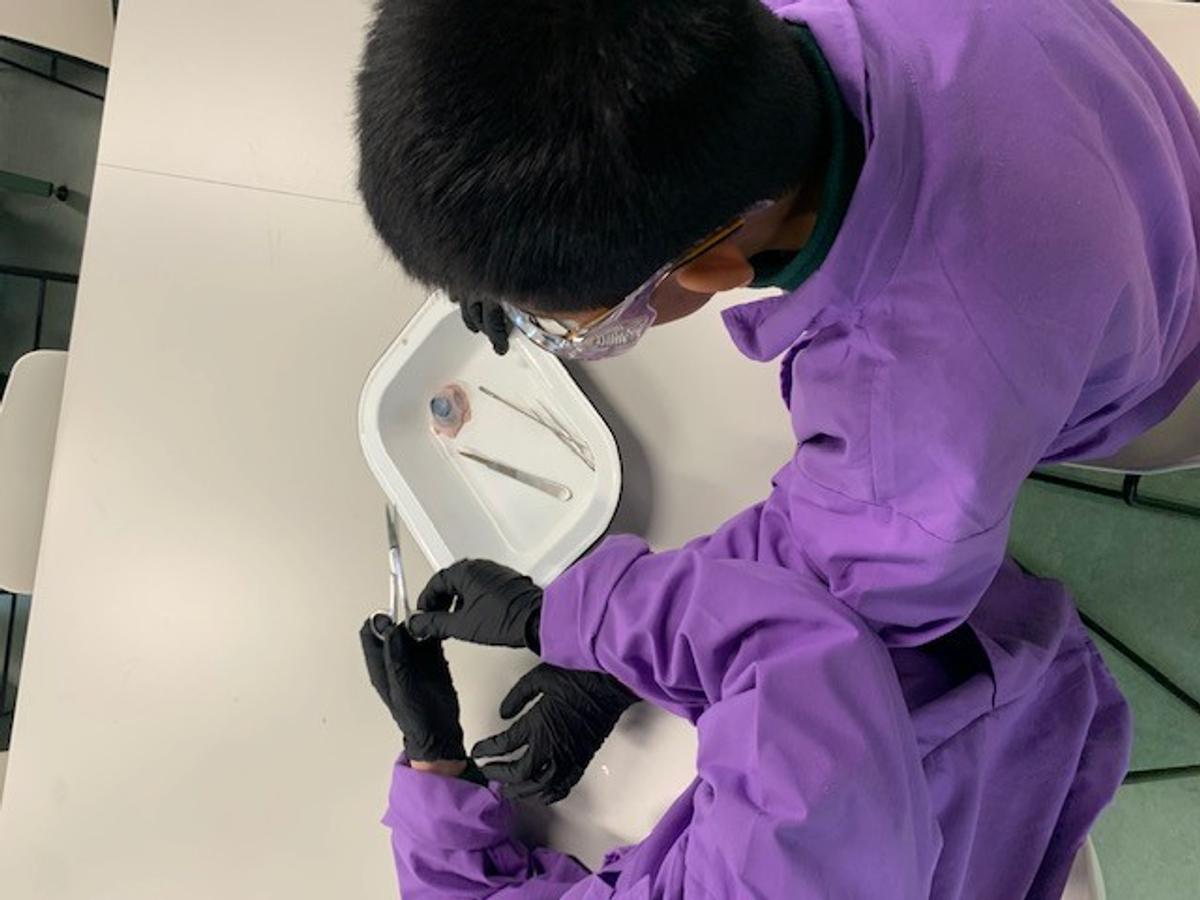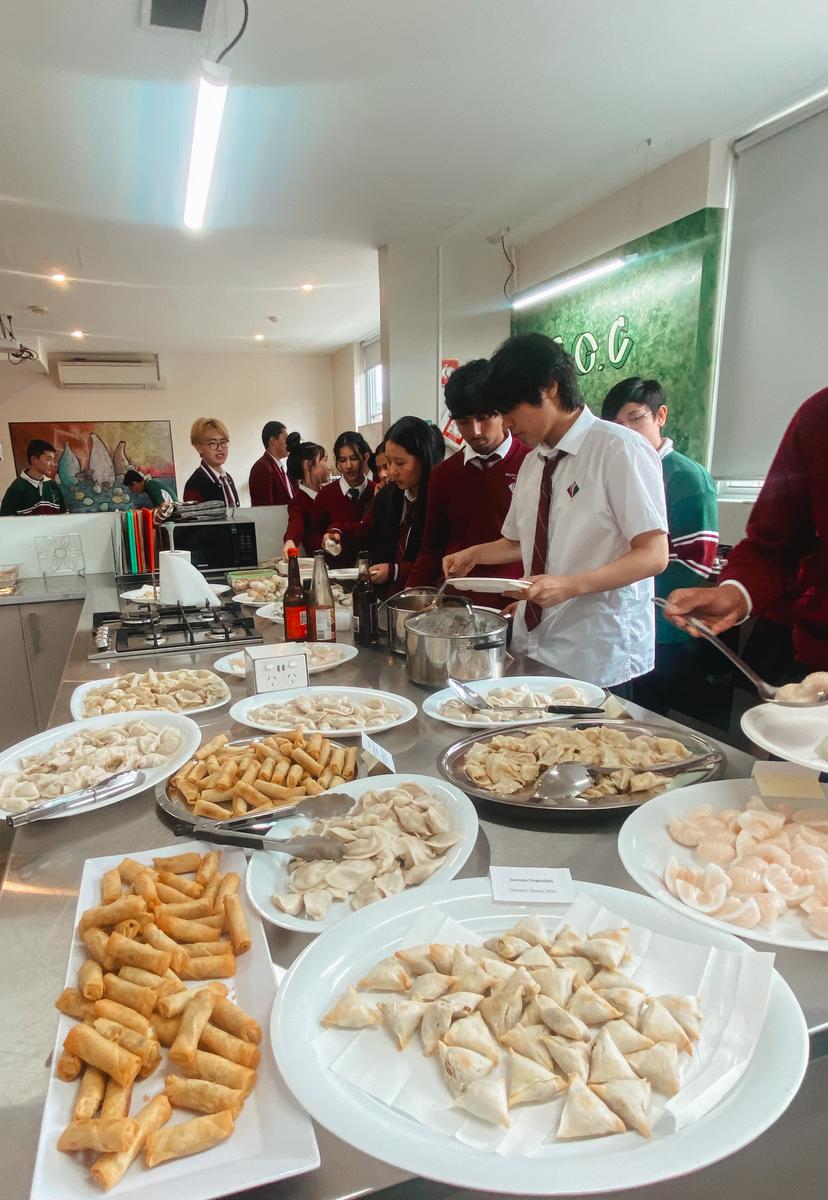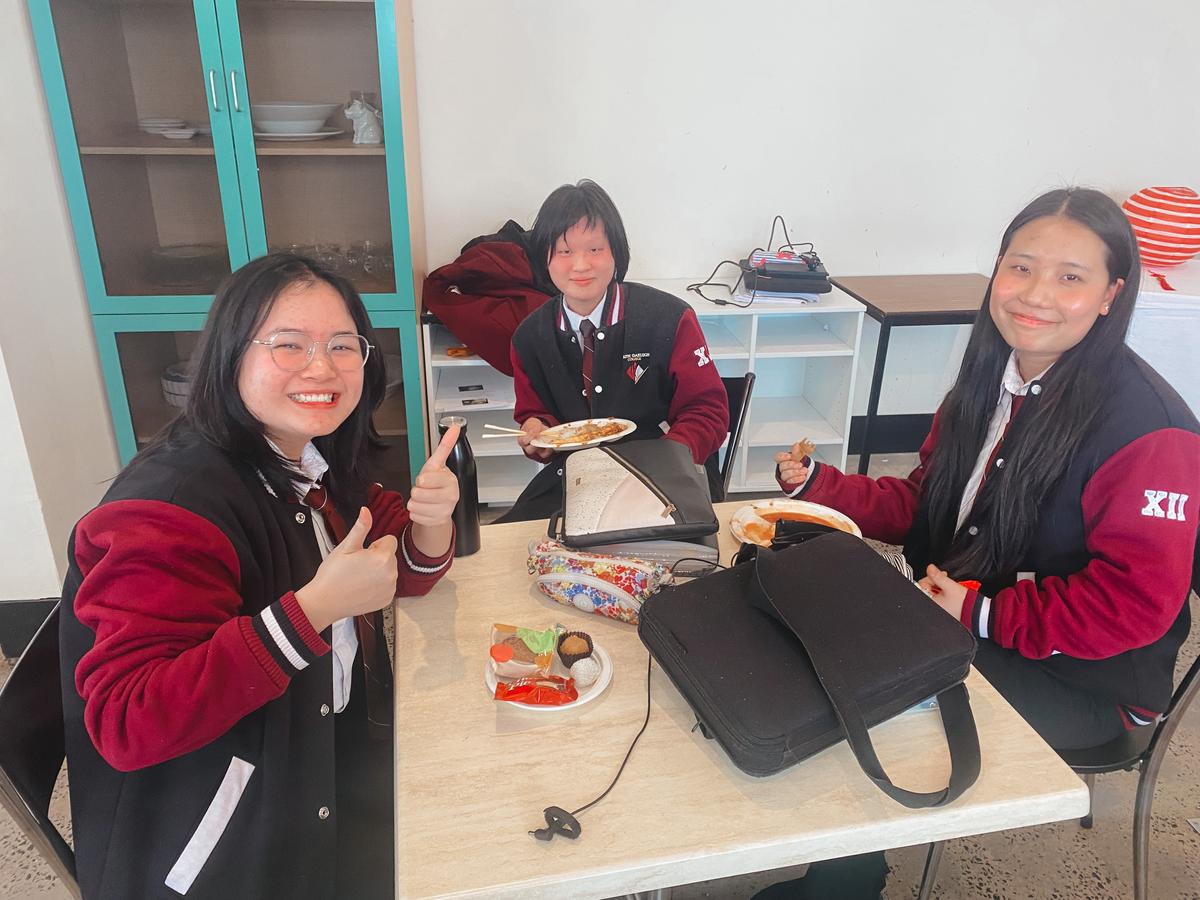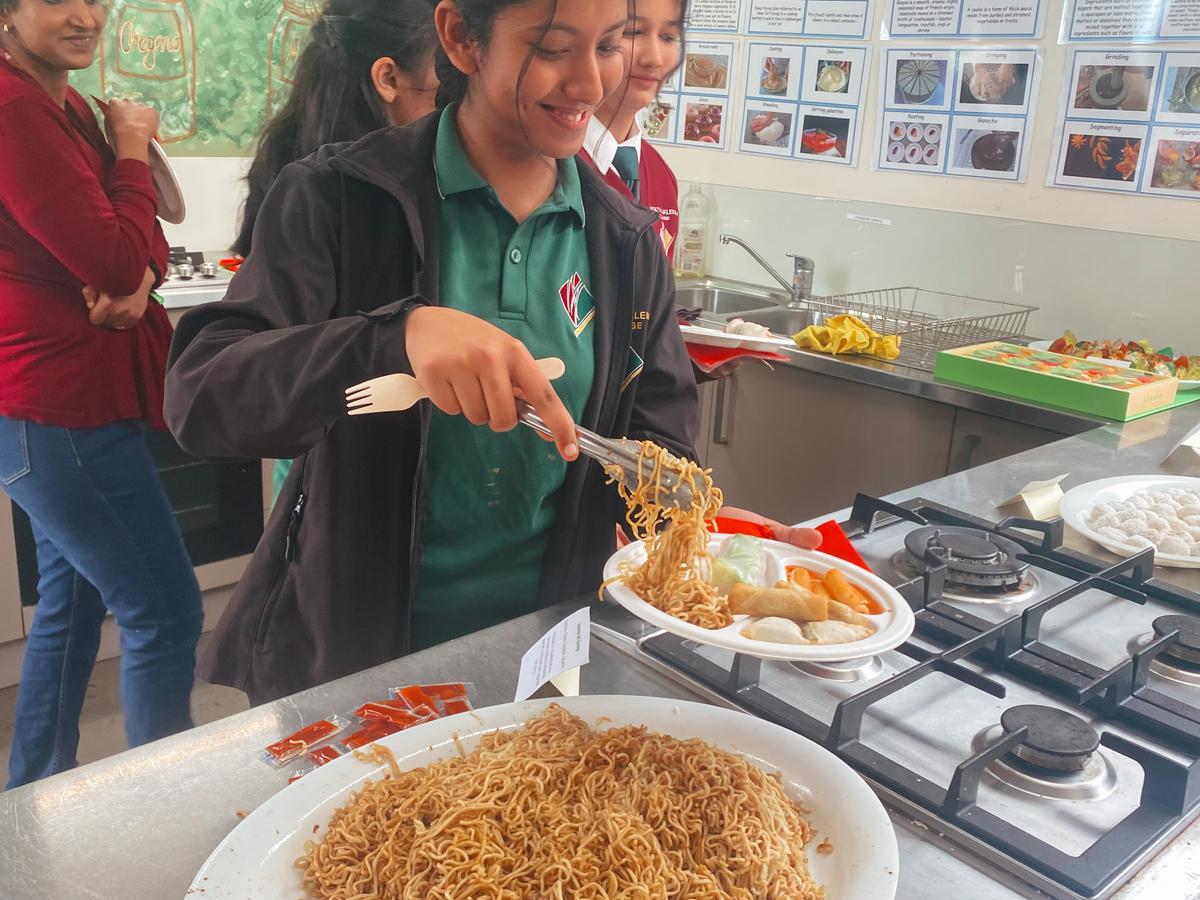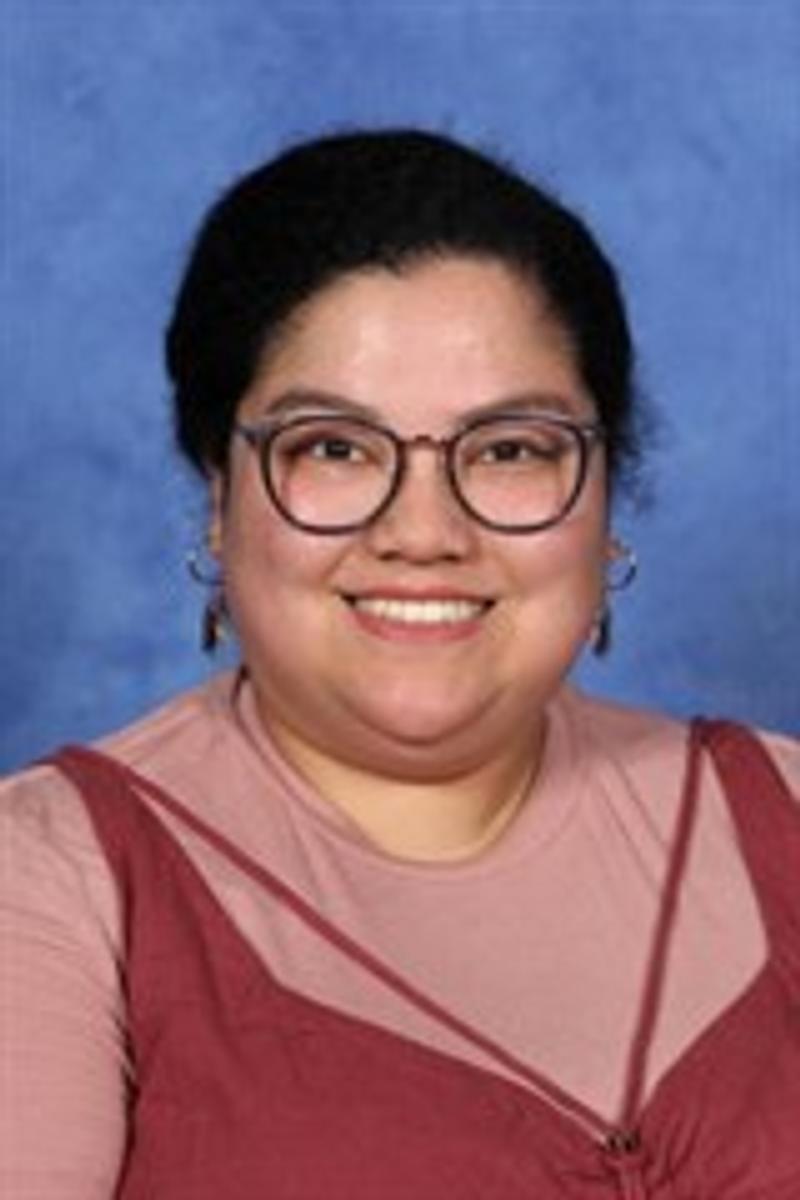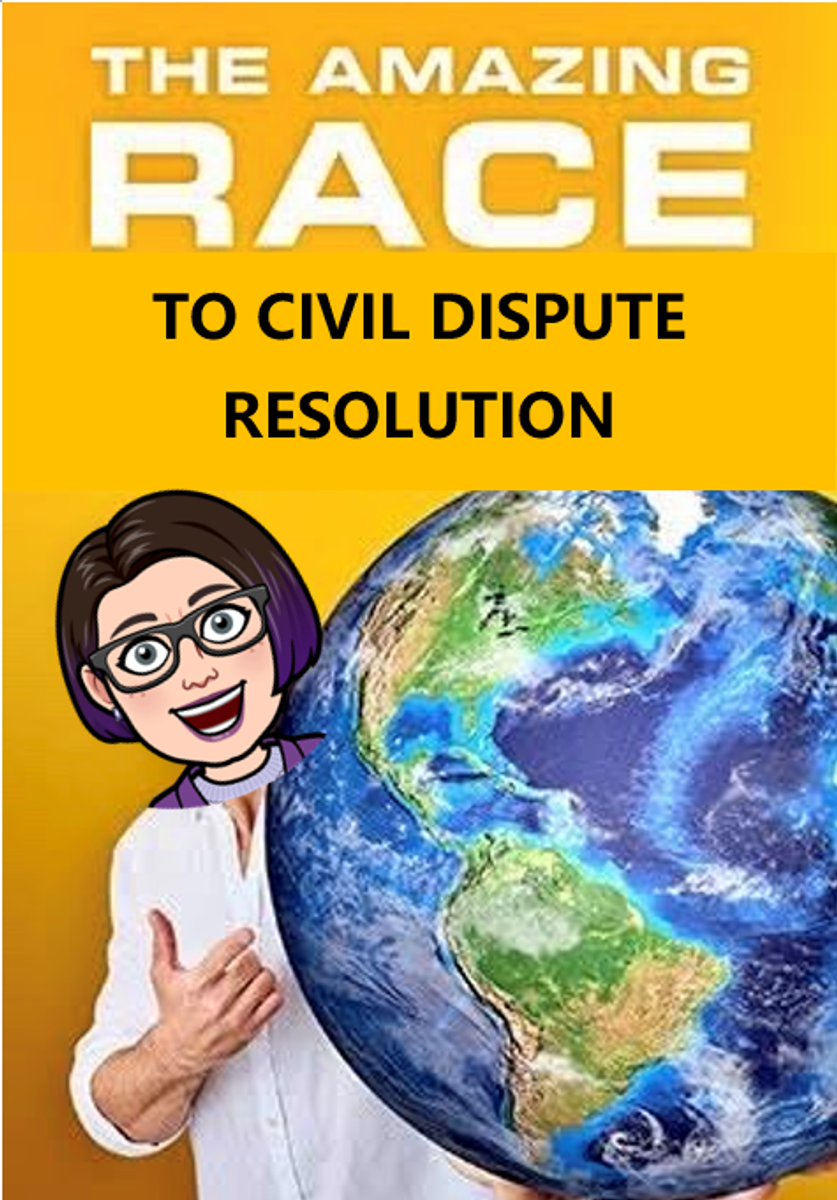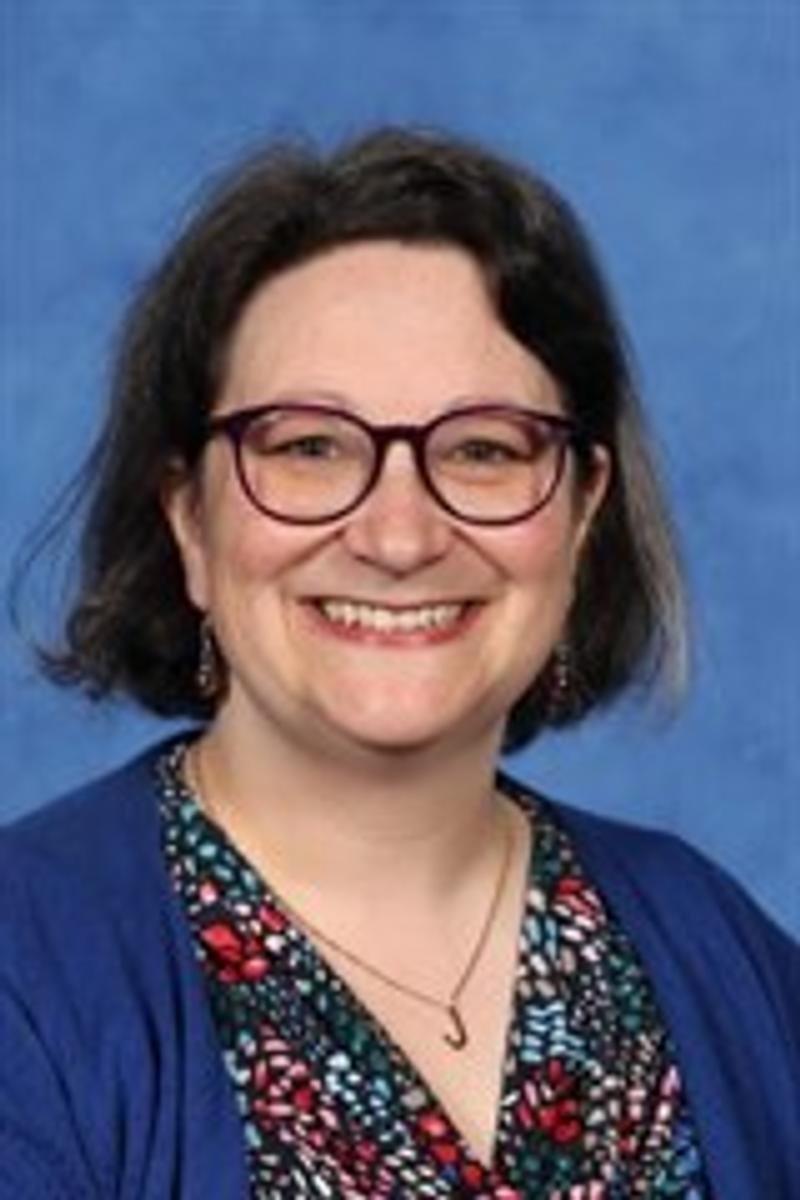Teaching & Learning
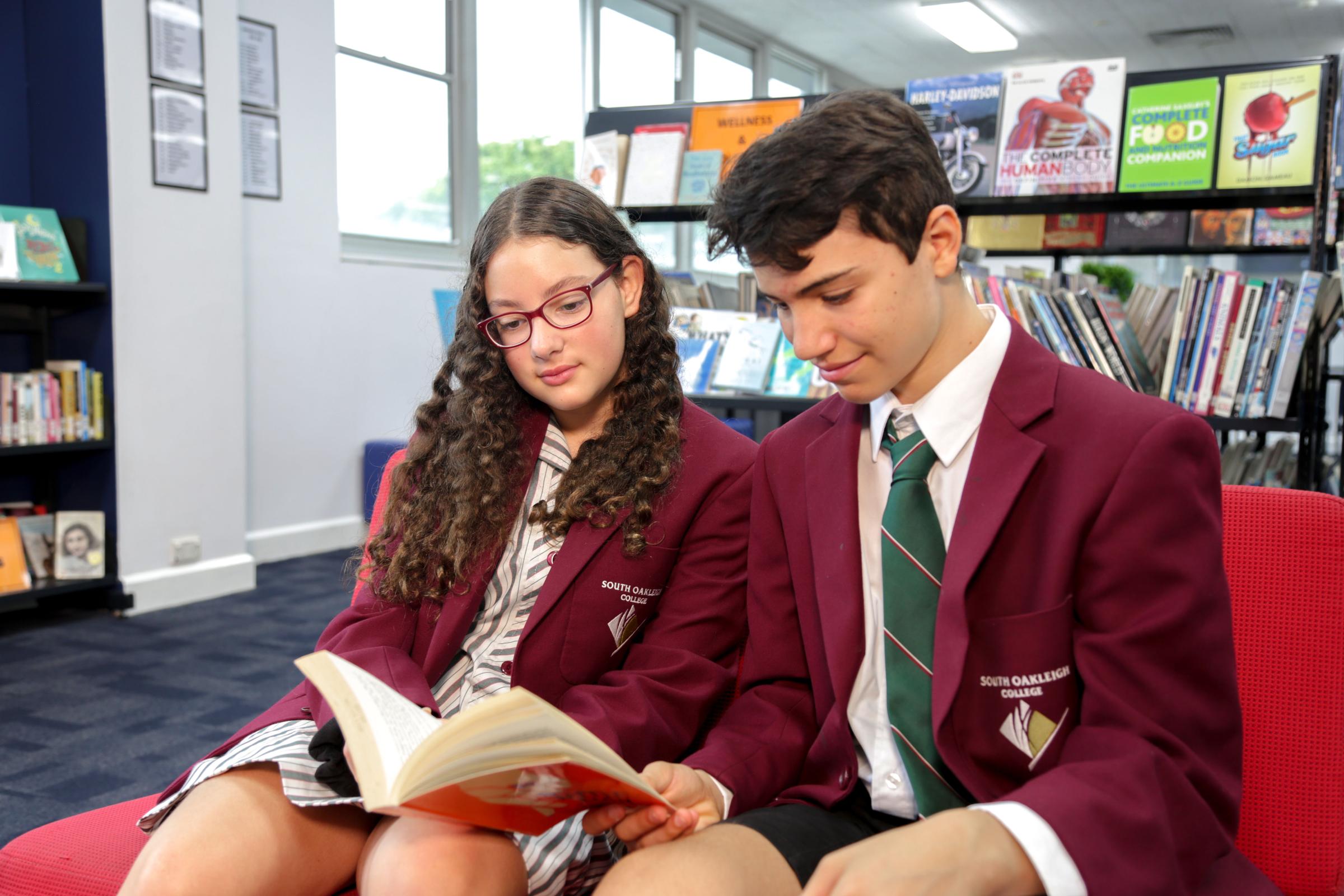
Calling all Former SOC Students!
Interested in joining our Alumni Community? We would love to hear what our former SOC students are up to! Fill out the following online form: https://forms.office.com/r/JakrRiSTFm if you are interested in sharing!
Mobile phone recycling at South Oakleigh
Many of us have discarded phones sitting in our drawers at home. Instead of your old phone taking up space you can bring it to school to recycle and help the environment at the same time. SOC is now part of the mobile muster program and a collection point for mobile phones.
Why recycling mobile phones matters
Mobile phones are made from many materials, including precious metals, so recycling reduces the need for mining. The critically endangered Grauer’s gorilla has lost 77 per cent of its population in the last 20 years due to degradation of its habitat because of mining the minerals used to make mobile phones. Recycling also saves energy. If products are manufactured using recycled materials the energy required to extract and process materials is saved.
What happens when I recycle my phone?
Through recycling MobileMuster transforms the components from mobile phone waste into valuable materials for reuse. It means that fewer raw materials need to be extracted and processed to make new products. By recycling your mobile phone today, you will be helping reduce the impact on the environment tomorrow.
Where do I recycle my phone?
You can put your unused mobile phone/s into a recycling box in the library. They will be sent to Mobile Muster and the components extracted and reused. Some of the details will be made into new mobile phones.
Remember you should wipe your data before recycling by going onto one of these websites:
iPhone: https://www.youtube.com/watch?v=g6tppaNiEHY
Android: https://www.youtube.com/watch?v=8RGoncGMFDM
Alison Jones
Sustainability Co-ordinator
Year 10 Alternative Sport Program
To mark the penultimate day of winter, the year 10 cohort attended the Boulder Lab in Clayton to try out the sport of Bouldering. For the majority of the students, it was the first time they had tried such an activity, despite the Bouldering venue being located only 4 kilometres from the school.
A part of the year 10 Alternative Sports Program is to expose students to sports and activities they may not have previously tried in their community – Bouldering certainly fits this aim. It was pleasing to see the students using their physical strength as well as their technical skills to climb the different levels of the venue. The best part of the whole experience was watching the students engaged in this new activity – hopefully, one they will repeat in future.
Noor Jenkins
House Leader: Acacia
Would you be able to help facilitate world peace?
Such was the challenge offered to six SOC volunteers who participated in the Model United Nations Assembly, hosted by Rotary, inside the Nossal High School Campus on Saturday, August 19th.
The MUNA is a yearly day-long event, in which students from different schools around regions of Victoria participate in a public debate while representing various different countries.
This event being a model, representatives had to act according to their country’s will, and speak on various issues through the lens of what will benefit their selected country. This required rigorous research from the participants. In our case, we spent one lunchtime every week discussing and preparing our arguments, looking over past UN Meetings and creating a deeper understanding of our country and its core tenets. Thank you to our teacher, Mr Hardy, for his guidance in our research.
On the day we discussed at length issues such as climate crisis and natural disaster relief, restructuring of the United Nations Security Council, the protection of trade routes and social media regulation. Each session was 45 minutes long, allowing ample time for as many countries as possible to provide their view on the matter. Some issues weren’t as popular as others; Protection of international trade routes had a lot fewer submissions than social media regulation.
In between each topic, 20-minute breaks offered a chance for participants to negotiate promises and discuss deals. Representatives paced through the hall, holding a paper and pen trying to get as many signatures of interest for their proposed amendments to get brought up. This need for signatures quickly created alliances, in which countries would always back specific countries, sometimes in exchange for votes. I will leave it up to your imagination as to which country supported which. Needless to say, there was a very clear binary.
Even during the session, the attempts to persuade did not stop. Notes would be passed around to different countries by “couriers”, notes that considered current arguments, or notes that were trying to guarantee a vote from other countries. Sometimes these notes would be a statement of disapproval.
Most of the representatives were very well prepared, being able to accurately portray their country in their decision-making.
Despite this preparation, some representatives weren’t given a lot of opportunities to speak, either due to their geographical position, lack of power in the global geopolitical spectrum, or political alignment. As Syria, Sylvia and I had quite a lot of difficulty being able to argue on some of these topics without breaking character. We weren’t able to discuss the international trade routes topic, because it didn’t affect us at the end of the day. Similar to Social Media regulation, as the only argument that could be made in our case was quite a stretch. But that is the reality of the MUNA: Some countries will have less stakes in particular issues. Perhaps it was the choice of topic which disadvantaged such countries.
The MUNA was an event that I would recommend to anyone with any interest in global politics. It was a teaching opportunity to the inner workings of the UN, and provided a chance for students to experience some aspects of politics first-hand. Despite the limitations imposed by the fact that we are students at the end of the day, most participants displayed an exceptional spirit and showed clear knowledge of their countries.
The countries being represented by SOC were:
Germany: Represented by Ana Donnellon & Yahya Muslemani
Cuba: Represented by George Shaddick & Gus Witter
Syria: Represented by Jason Pouliezos and Sylvia Krozian
Jason Pouliezos
College Captain
Music Department Update
Our eagerly awaited Spring Concert was held on Thursday, September 7, to a packed house of excited and enthusiastic audience members. More than 80 students took to the stage over the course of the evening, along with a student-led backstage crew and sound and lighting team. We were treated to performances by our Concert Band, Choir, Chamber Ensemble, VCE Ensemble, Pop Ensemble and our Rock Band, as well as some wonderful solo performances of pieces by Rossini, Jamiroquai, Gloria Gaynor, Andrew Lloyd Webber, Dusty Springfield and many, many more. The opening and closing numbers featured all students on stage together, playing wonderful music and having a great time doing it.
Special thanks to Philip Clark, Jamie Payet, Logan Hamilton and their team, and of course to our music staff Adele Oppedisano, Sara Neep, Marc Law, Sam Bennett, Rachel Sifris, and Performing Arts Captains Maya and Fin, who provided their own script as hosts and did an excellent job.
Above all, the Spring Concert was lots of fun! A big thanks to all who attended - we can't wait to see what musical wonders our students will bring us next year.
SOC’s Got Talent is also happening today, September 15 – we’re looking forward to seeing a wide variety of acts from all year levels, musical and otherwise!
Aidan Prewett
Director of Music
2023 ICAS Competitions
In 2023, SOC offered the International Competitions and Assessments for Schools (ICAS) through UNSW in Term 3. Children were invited to register for up to six assessments (at parent expense). Competition questions are set in real-world scenarios where students are assessed on their ability to apply classroom learning to new contexts, and use higher-order thinking and problem-solving skills. All participating students will receive a detailed report and certificate reflecting their achievement on each assessment.
Sulagna Monga
Learning Specialist: Enhancements, Challenge & VCE
Accelerated English: Creative excerpt responses to Alice Pung’s “Laurinda”
Students were required to respond creatively to “Laurinda” by Alice Pung. They were instructed to focus on the ‘setting’ and the author’s stylistic techniques to write a reflective piece of writing about their neighbourhood, suburb, school and family.
As you rest, you think back to your glorious high school days. You reminisce about taking the 703 bus from the College all the way down to Eva St. to make the 10-minute trek back home. You remember your house residing on the corner of a not-so-busy 4-way intersection, protected by your demonic dogs. The average-sized home was ancient when compared to the seemingly infinite supply of demolition and construction sites surrounding it. The distribution of debris across the roads made it no easy task to cross without popping a tyre, much to your sister Halle’s (who was still on her L plates) dismay.
Your over-exposed abode was somewhat covered up by a wall of leafy hedges that looked as if they had not been tended to in years — which was often the case. Ormond Rd might have been viewed by some as a dangerous place full of arsons and domestic abusers, but it really was not too bad, there were only a few police report slips in the letterbox each month. But if it did get out of hand, the nearby tradies would all congregate, and with their battered hands and power tools, they would intimidate the man to leave his pregnant wife alone in time for the police to arrive.
But on occasion, you would not go straight home. You would say yes to those friends who asked every Friday if you wanted to hang out. And on occasion, you would not chicken out at the last moment and get off at Eva St. because you just wanted to see your dogs. Instead, you would remain on the bus with your friends and enter the aptly named Clayton Rd through the rear. You would pass the recently renovated Subway and dilapidated Beaurepaires and an instant rush of adrenaline would hit as the already loud ambience of Centre Rd was overcome by the bustling Clayton. You would pass Ping’s Dumplings, and the taste of juicy, tender pork would fill your mouth, the Italian deli where you got your pasta, and countless other restaurants and stores, including the best Fish and Chip shop you will find that seemed to change hands every time your dad befriended the owner. You would pass Chayo café, Chemist Warehouse and Hong Kong Supermarket, each providing a different odour to waft into your nose.
The short drive through the compact strip would come to an end when the bus would reach Clayton Station. You would step off the coach and marvel at the colossal sky rail above you which would remind you of when people were stupidly protesting something that would obviously make their lives easier. After a short walk, you would be met with the basketball courts where you would play a game of pickup with your friend and watch not only the rush of South Oakleigh students, ravenous after a long day of school, but also the wave of people returning from work in the CBD, wondering with you what to have for tea.
By R.Z
Author’s Note
In this creative response to Alice Pung’s ‘Laurinda’, I have mimicked her writing style by using slightly grim humour in paragraph 2 in the police report slip anecdote and paragraph 3 in the fish and chip shop story. I also wrote in the 2nd person by using ‘you’ and ‘your’ instead of ‘I’ and ‘my’ and created a warm sense of nostalgia and memory by using words such as ‘reminisce’ and ‘remember’. I also used a similar opening sentence to the novel, citing my taking the 703 bus after school.
Recollection of our suburb is somewhat focused on the 742 bus, which was one of our main time-wasting activities. It was always raggedy and worn down, but it paved the way to Oakleigh and Chadstone SC, which were newly found as places we could loiter, or explore, without our parents.
Reg Harris Reserve, the packet and bottle polluted park, was our main meeting point for most of our endeavours. Sure, we knew that our suburb was bland and middle class, but we loved to waste time making the most of it.
When we bought our house, it could have easily been mistaken as the local dealer’s place, as it reeked of alcohol and smoke. The walls were on their last limbs, tinged in a yellowy-tan colour from the nicotine stains. The backyard was huge, with a driveway running down the middle. There was a garage and outhouse, that had not been used for so long you could classify them as spider enclosures.
Through the years, our house has become nicer (after several renovations) and seems high middle-class. Nevertheless, my family did not feel middle class. Kmart clothes and corner store food brands ran our lives. They were okay I guess, but I also remember the vomit-filled jugs they called orange and mango juice. It was so horrific that we were throwing up for days.
By L A.
Remember that feeling you would have whenever we would enter the streets of Oakleigh South? It was like stepping into a symphony of cultures, where every note and melody of diversity harmonized into a captivating rhythm of community spirit. As you would walk down the serene, tree-lined streets, you would feel almost instantly welcomed by the tapestry of diversity that weaved through every corner of the neighbourhood. No one besides our closest neighbour really sought a connection with us.
Marcia? Marcel? I always forgot her name, but she was right next to us, and you would recognise her as the old, lonely woman next door. Now, I would just minus the lonely part since she now had our parents for support. On special occasions, she would send us some of her home-cooked Egyptian cuisines, you used to assume she made one dish too many, but later came to the realisation that she did it as an act of kindness.
Our house would be the easiest to draw in my neighbourhood. It was just a wall of bricks going around in a rectangle, high enough for a 2-storey-house, with a pyramid smacked down on top. It was never an issue drawing our house, and you were always proud of how your drawings of our house looked, since you deemed them to be quite accurate. Despite being indoors all day, Mum was still very inaccessible. She was always cooped up in her room, occasionally leaving for either cooking or groceries.
I have noticed my dad’s presence becoming more prominent around the house, and how he became a more integral part of our daily routine. Ever since my older brother graduated, he has seamlessly travelled into a more supportive role, working behind the scenes to help with various tasks and responsibilities, although his physical presence has become less frequent.
By R. A.
Phyllis Dimakakos
Year Level Leader: 9
OSPS Grade 5 Incursion: Eyeball Dissection
In the second half of this Term, it was a pleasure hosting the Grade 5 students from Oakleigh South Primary School in various activities across 5 weeks. These activities included the SmallLab, the TV Studio and the famous (or infamous) eyeball dissection in our brand-new science laboratories!
George Tzimourtas
Leading Teacher: Junior School
Term 3: International Student Lunch
On the 7th of September, SOC had an ‘International Student Lunch’ for our International Students and guests.
A lot of cultural festivals this year fall into the Term 3 holidays, so it felt like a good time to get everyone together, share our cultures and celebrate the connections our International Students have made this year so far.
On the day of the lunch, our International Students came together to prepare a variety of different foods to represent their cultural backgrounds.
Sovan took charge of the nom plae ai making, with the help of Darrien, Nathanie and Sheran. Nom plae ai are sweet dumplings that are made of glutinous rice flour, filled with a melted palm sugar filling and rolled in coconut. They are a popular street food in Cambodia. These were a hit, and were quickly gobbled up.
Jenny and Junghoo worked well together to make tteokbokki. Tteokbokki is a Korean dish that consists of rice cakes that are simmered in a sweet and spicy sauce, with fish cakes and spring onions. The tteokbokki was super popular, despite the tteokbokki not having as much gochujang as our cooks wanted in it.
Aku, Abigail, Beatrice, Ikko and Minh worked together to efficiently roll a large amount of chicken and tofu rice paper rolls, they were like a well-oiled machine!
Nathanie, Abigail and Beatrice brought and made mi goreng for everybody and Ms Hue brought some really gorgeous moon cakes.
Also on the menu, though not made from scratch, were dumplings, har gow, spring rolls, samosas, besan ladoo and kaju katli.
Everybody who attended the lunch commented that they loved the community feeling of the lunch, as everyone was able to sit in the food technology café area and catch up.
Student’s Favourites:
- Tung’s favourite part of the lunch was the tteokbokki.
- Harry N’s favourite part of the lunch was the pork and chive dumplings.
- Talya’s favourite part of the lunch was the prawn har gow.
- Mayank’s favourite part of the lunch was the inclusivity of it.
Sarah Crespo-Liu
House Leader: Banksia
VCE Legal Studies – Unit 2
On Friday 8 September 2023, the students also participated in the annual “Amazing Race for Civil Dispute Resolution”! This scavenger-hunt activity had students racing around school, finding clues and exploring the various options available to help resolve disputes in the Victorian civil justice system – whether it be personal injuries (negligence), consumer disputes, issues between landlords and tenants, defamation, challenging a Will, family or property law.
Each of the hypothetical scenarios the students explored, described real-life experiences the students are likely to face in the future if they hadn’t already – connecting the curriculum to our everyday lives. The Amazing Race consolidated the students’ understanding prior to their SAC on civil law.
On Wednesday 13 September 2023, the Unit 2 VCE Legal Studies students were treated to a “digital excursion” with the Museum of Australian Democracy – a Zoom call to Canberra. Our host, Neil, took us through Old Parliament House via the internet! We climbed the front steps and entered both the House of Representatives and the Senate. Neil shared several stories from the history of our modern democracy, with a focus on the rights of our First Nations peoples. The students particularly enjoyed analysing the official portraits of Neville Bonner, the first Aboriginal person to become a member of our federal parliament, as well as Linda Burney, a proud member of the Wirdjuri nation, the first Aboriginal woman to serve in the House of Representatives and current Minister for Indigenous Australians. What a great way to launch into our final Area of Study for Unit 2 – Rights!
Jacinta Marlborough
Legal Studies Teacher

